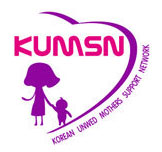 A friend who is doing doctoral work in anthropology recently shared this article about the Korean Unwed Mothers Support Group, which “enable[s] Korean women to have sufficient resources and support to keep their babies if they choose, and thrive in Korean society, rather than feel compelled to give up their children for adoption or risk a life of poverty.” Besides finding it interesting to see this in The Wall Street Journal, I’m also drawn to the topic because of the outreach to a specific group that not only experiences major stigma but is truly on the margins: single mothers in Korea. The article touches on a number of issues for me, like women and motherhood, family roles, and international adoption. Here are a couple things that stand out the most to me.
A friend who is doing doctoral work in anthropology recently shared this article about the Korean Unwed Mothers Support Group, which “enable[s] Korean women to have sufficient resources and support to keep their babies if they choose, and thrive in Korean society, rather than feel compelled to give up their children for adoption or risk a life of poverty.” Besides finding it interesting to see this in The Wall Street Journal, I’m also drawn to the topic because of the outreach to a specific group that not only experiences major stigma but is truly on the margins: single mothers in Korea. The article touches on a number of issues for me, like women and motherhood, family roles, and international adoption. Here are a couple things that stand out the most to me.
The Human Connection
When the founder, Dr. Richard Boas, decided to travel to Korea with the adoptive agency that helped connect their family to their Korean daughter, he discovered what bothered him about so many single mothers putting up their children up for adoption. When he arrived at various facilities he saw there weren’t a lot of resources or much support for many of these children or their single mothers, which made the only viable option even more appealing. It took being present there with them in the midst of this void rather than making an assumption about these situations.
The Cultural Connection
These women are dealing with the all-too-familiar shame and guilt that is entrenched in Korean culture. Instead of focusing on those complicated dynamics and trying to change the reality of the existence through some kind of Western or idealistic verbiage, Dr. Boas is doing something really practical through his Korean Unwed Mothers Support Network. He is utilizing people that are Korean natives to run the organization and through them, he is raising awareness and initiating dialogue by providing what’s necessary to support these single moms.
We need more of these types of endeavors – not only in Korea – but in the US, particularly for immigrant groups that don’t have access to the necessary resources to simply survive besides dealing with shame and stigma, both of which are not unique to Korean culture, but are found anywhere people experience marginalization.








